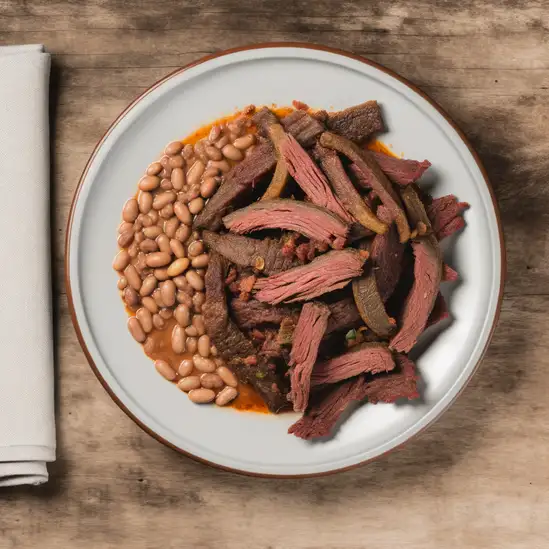



If you’re dreaming of a place where time slows down and the ocean breeze carries a gentle promise of peace,São Miguel dos Milagres is that kind of magic. Nestled along Brazil’s northeastern coast,this little town feels like stepping into a postcard painted with soft pastels—the turquoise waves lazily brushing against powdery white sands,while palm trees sway with a rhythm that matches the calm heartbeat of the village. It’s the kind of place where mornings start with the salty scent of the sea mingling with fresh coconut water,and the only rush is deciding whether to lounge in a hammock or explore the tide pools. The vibe here is effortlessly warm and welcoming. Locals greet you with genuine smiles,and the pace of life invites you to savor every moment. You’ll hear the distant laughter of children playing on the beach,the gentle strumming of a guitar from a nearby bar,and the soft chatter of fishermen mending their nets. The culture is deeply connected to the sea—fresh seafood is a daily celebration,and you can taste the ocean’s bounty in dishes like moqueca,rich with coconut milk and local spices. What makes São Miguel dos Milagres truly special is its blend of untouched natural beauty and heartfelt simplicity. It’s not about flashy attractions but about feeling the sun warm your skin,dipping into crystal-clear pools formed by coral reefs,and watching the sky blush at sunset. If you want a place that feels like a slow,sweet breath away from the world’s noise,this is it.
The information on this page is currently being reviewed by Tripkliq and should be used as a guide only
Eng word: Hello
Eng pronunciation: Oh-lah
Local language: Olá
Eng word: Goodbye
Eng pronunciation: Ah-deh-oosh
Local language: Adeus
Eng word: Thank you
Eng pronunciation: Oh-bree-gah-doo
Local language: Obrigado
Eng word: How much
Eng pronunciation: Kwahn-too koos-tah
Local language: Quanto custa
Eng word: Toilet
Eng pronunciation: Bahn-yay-roo
Local language: Banheiro
Eng word: Help me
Eng pronunciation: Ah-zhoo-dee mee
Local language: Ajude-me
Eng word: Yes
Eng pronunciation: Seem
Local language: Sim
Eng word: No
Eng pronunciation: Now
Local language: Não
Eng word: Excuse me
Eng pronunciation: Kohm lee-sen-sah
Local language: Com licença
São Miguel dos Milagres, located in the state of Alagoas, Brazil, is believed to have been settled in the early colonial period. Its name, which translates to 'Saint Michael of Miracles,' reflects the deep religious roots of the region.
The town's name is inspired by a local legend of Saint Michael performing miracles in the area. This story has been passed down through generations and remains an integral part of the town's cultural identity.
During the colonial period, São Miguel dos Milagres played a role in the sugarcane economy, which was a major driver of the region's development. The fertile lands of Alagoas contributed to the prosperity of the area.
The town is home to charming colonial-era churches, such as the Chapel of São Miguel Arcanjo, which stands as a testament to the region's rich history and architectural heritage.
São Miguel dos Milagres has a long history as a fishing village. The local community has preserved traditional fishing techniques, which continue to be a vital part of the town's culture and economy.
The natural pools, or 'piscinas naturais,' that São Miguel dos Milagres is famous for were discovered centuries ago by local fishermen. These crystal-clear pools are formed by coral reefs and are a major attraction for visitors today.
São Miguel dos Milagres is part of the Costa dos Corais Environmental Protection Area, established in 1997. This designation highlights the area's ecological importance and its commitment to preserving marine biodiversity.
The region is home to Quilombola communities, descendants of escaped African slaves. These communities have preserved their unique cultural traditions, which contribute to the rich cultural tapestry of São Miguel dos Milagres.
In recent decades, São Miguel dos Milagres has become a hub for ecotourism. Visitors are drawn to its pristine beaches, lush landscapes, and opportunities to explore the natural beauty of the region in a sustainable way.
In São Miguel dos Milagres, the most common Power Adaptor is Type A, Type B.



Sun-dried beef that is typically grilled or fried, served with sides like mashed potatoes or rice, showcasing the region's meat preservation techniques.

A deep-fried ball made from black-eyed peas, filled with shrimp and served with a spicy sauce, popular in the northeastern coastal regions.

A hearty dish made with rice and beans, typically flavored with cheese, meat, and spices, reflecting the local cuisine's rustic roots.

A gluten-free pancake made from cassava flour, often filled with sweet or savory ingredients, making it a versatile snack or meal option.

A traditional Brazilian fish stew made with coconut milk, tomatoes, onions, and peppers, often served with rice.

A fish stew made with various types of fish, vegetables, and spices, often served with rice and a side of farofa.
If you ever find yourself dreaming of a place where the ocean feels like a warm embrace and the air hums with a laid-back rhythm,Maceió is that kind of magic. This coastal city in Brazil has a vibe that’s both vibrant and soothing,like a favorite song you want to play on repeat. Imagine waking up to the gentle crash of turquoise waves against white sandy beaches,palm trees swaying lazily overhead,and the salty breeze carrying hints of fresh coconut and grilled seafood from nearby beachside kiosks.
Walking through Maceió’s streets,you’ll catch the lively chatter of locals blending Portuguese with laughter,the colorful murals that splash personality across walls,and the scent of tropical fruits mingling with the ocean air. The city pulses with a genuine warmth—people here aren’t just friendly,they’re inviting you into their world,whether it’s through sharing a caipirinha at a bustling bar or teaching you the steps to a forró dance.
What makes Maceió truly stand out is how effortlessly it balances natural beauty with rich culture. Beyond the beaches,you can explore vibrant markets filled with handcrafted lace and fresh fish,or take a boat ride through crystal-clear lagoons framed by towering cliffs. It’s a place where every sunset feels like a personal gift,painting the sky in fiery oranges and pinks,and where you leave with your heart a little fuller and your spirit a little lighter.
If you ever find yourself craving a place where history hums through the streets and the ocean breeze carries the scent of salt and tropical flowers,Recife should be at the top of your list. This city pulses with a unique rhythm—part vibrant urban energy,part laid-back coastal charm. Walking through Recife,you’ll hear the distant strum of frevo music blending with the chatter of locals in colorful markets,while the sun casts a golden glow over colonial buildings and modern skyscrapers alike.
What really grabs you here is the way the city wears its culture on its sleeve. The streets are alive with Afro-Brazilian traditions,from the lively dance performances to the tantalizing aroma of tapioca and fresh seafood sizzling in street stalls. You can almost taste the history in the air,especially in neighborhoods like Recife Antigo,where cobblestone streets lead you past art galleries,cozy cafés,and vibrant street art that tells stories of resilience and joy.
And then there’s the water—Recife is often called the "Venice of Brazil" because of its many rivers and bridges,but it’s the beaches that steal your heart. Imagine sinking your toes into warm sand,the Atlantic waves gently rolling in,while the sun dips low,painting the sky in shades of pink and orange. It’s a city that invites you to slow down,soak in the colors,sounds,and flavors,and leave with a little more warmth in your soul than when you arrived.
If you ever find yourself dreaming of a place where the ocean breeze carries the scent of salt and tropical flowers,Natal is that kind of magic. This city pulses with a laid-back energy that feels like a warm hug the moment you arrive. Imagine walking along endless stretches of golden sand,the sun painting everything in soft,honeyed light,while the rhythmic crash of waves invites you to slow down and just be. Natal isn’t just about its stunning beaches; it’s a place where the vibrant culture seeps into every corner—from the colorful markets filled with the chatter of friendly vendors to the lively rhythms of forró music spilling out of local bars as the sun dips below the horizon.
What really makes Natal special is its blend of natural beauty and genuine warmth. The dunes of Genipabu,with their rolling sands and adventurous buggy rides,offer a thrilling contrast to the calm,turquoise waters of Ponta Negra beach. You can taste the freshness of the sea in every bite of local seafood—imagine savoring a plate of freshly grilled fish,seasoned with lime and herbs,while the salty breeze brushes your skin. The city’s history whispers through its colonial architecture and the stories shared by locals who are proud of their roots but always eager to welcome newcomers.
Visiting Natal feels like stepping into a vibrant postcard where every moment invites you to explore,relax,and connect. Whether you’re chasing sunsets,diving into the culture,or simply soaking up the sun,this city leaves a lasting impression that makes you want to come back for more.
Imagine stepping into a place where every street corner hums with rhythm and color—that’s Salvador. The city pulses with Afro-Brazilian culture,a vibrant mix of history,music,and mouthwatering food that wraps around you like a warm embrace. Walking through Pelourinho,the old town,you’re surrounded by pastel-colored colonial buildings,their walls echoing with the beats of samba and the distant call of street vendors selling acarajé—crispy,spicy black-eyed pea fritters that smell like heaven. The air carries a mix of sea breeze and the sweet scent of tropical fruits from nearby markets.
Salvador’s energy is contagious. Locals dance in the streets,their movements fluid and joyful,inviting you to join in. The city’s soul is deeply tied to its African roots,visible in the vibrant Candomblé ceremonies and the lively festivals that light up the calendar. At sunset,the golden light spills over the bay,turning the water into molten gold,while the sound of waves mingles with distant drums.
What makes Salvador unforgettable is how alive it feels—like the city itself is breathing,singing,and celebrating life. Whether you’re savoring fresh seafood by the shore,exploring colorful markets,or simply soaking in the infectious warmth of its people,Salvador leaves a mark on your heart. It’s not just a place to visit; it’s a place to feel,to dance,and to remember long after you’ve left.
Fortaleza feels like a vibrant celebration of life right on Brazil’s northeastern coast. The moment you step onto its sun-drenched beaches,the warm ocean breeze carries the salty tang of the sea mixed with the sweet aroma of grilled seafood from nearby beach shacks. The city hums with energy—locals chatting animatedly in Portuguese,the rhythmic pulse of forró music spilling out from open windows,and the laughter of children playing soccer on the sand. It’s a place where the sun seems to linger longer,inviting you to slow down and soak in the simple joys.
Wandering through Fortaleza’s streets,you’ll notice a colorful blend of old colonial architecture and modern buildings,all painted in bright hues that mirror the city’s lively spirit. The markets are a feast for the senses—fresh tropical fruits piled high,the spicy scent of acarajé frying in black clay pots,and artisans crafting delicate lace and leather goods. There’s a genuine warmth in the people here,a friendliness that makes you feel like you’re part of the community,even if just for a few days.
What really sets Fortaleza apart is its mix of urban buzz and natural beauty. After a day exploring the bustling city center or the historic Fortaleza de Nossa Senhora da Assunção,you can escape to the calm of the nearby dunes or take a boat out to the nearby islands. Whether you’re sipping a cold caipirinha at sunset or dancing under the stars at a beach party,Fortaleza invites you to live fully,taste deeply,and connect with a culture that’s as rich and inviting as its landscapes.
Imagine stepping into a city where the rhythm of samba pulses through the streets and the air carries a salty breeze mixed with the scent of fresh coconut water. That’s Rio de Janeiro for you—a place that feels alive in every sense. From the moment you arrive,you’re wrapped in a vibrant energy that’s both laid-back and electric. The city’s dramatic landscape,with its towering granite peaks like Sugarloaf and the iconic Christ the Redeemer statue watching over the bay,creates a stunning backdrop that’s impossible to forget.
Walking through Rio’s neighborhoods,you’ll hear the laughter of locals chatting in colorful markets,the distant beat of drums from a street party,and the waves gently crashing on golden beaches like Ipanema and Copacabana. The sun warms your skin as you sip on a caipirinha,the tangy lime and sweet sugar blending perfectly with the tropical heat. Food here is a celebration—imagine feijoada bubbling in a pot,or fresh seafood grilled right by the shore,each bite telling a story of the city’s rich culture.
What makes Rio truly special is its spirit—a mix of resilience,joy,and openness. People here embrace life with a contagious passion,whether they’re dancing during Carnival or simply sharing stories over a late-night meal. It’s a city that invites you to slow down,soak in the beauty,and join in the celebration of life. Trust me,once you’ve felt Rio’s heartbeat,it stays with you long after you leave.
Some beachside vendors may charge excessive fees for the use of chairs and umbrellas, especially if prices are not agreed upon beforehand.
Vendors may sell fake or low-quality handicrafts, claiming they are authentic local products, at inflated prices.
Unsuspecting tourists may have their credit card information stolen at certain establishments, particularly if the card is taken out of sight for payment.
Some restaurants may inflate bills by adding items that were not ordered or by charging hidden fees, such as service charges, without informing the customer.
Some operators may sell trips to the famous natural pools during high tide when the pools are not visible, leaving tourists disappointed upon arrival.
Scammers may pose as parking attendants, charging tourists to park in free public areas near the beaches.
Tour operators may charge tourists significantly higher prices for boat trips, buggy rides, or visits to natural pools, especially if the tourists are unfamiliar with the standard rates.
Brazil has strict drug laws, and the possession, use, or trafficking of illegal drugs is a criminal offense. While small amounts of drugs for personal use may result in administrative penalties rather than imprisonment, the definition of 'personal use' is subjective and can vary by case. Tourists should avoid any involvement with illegal drugs to prevent legal issues. Additionally, drug-related offenses can carry severe penalties, including imprisonment.
In São Miguel dos Milagres, Brazil, smoking is regulated under Brazilian federal law. Smoking is prohibited in enclosed public spaces, such as restaurants, bars, hotels, and public transportation. Smoking is also banned in certain outdoor areas, such as near schools, hospitals, and playgrounds. Tourists should look for designated smoking areas and avoid smoking in prohibited zones to avoid fines.
Vaping is subject to similar restrictions as smoking in Brazil. The use of electronic cigarettes is prohibited in enclosed public spaces and other areas where smoking is banned. Additionally, the sale and importation of nicotine-containing e-cigarettes and vaping devices are technically illegal in Brazil, although enforcement may vary. Tourists should exercise caution and avoid vaping in restricted areas.
What are other people saying about São Miguel dos Milagres?
Recent Social posts about São Miguel dos Milagres
There is nothing to show you for now.